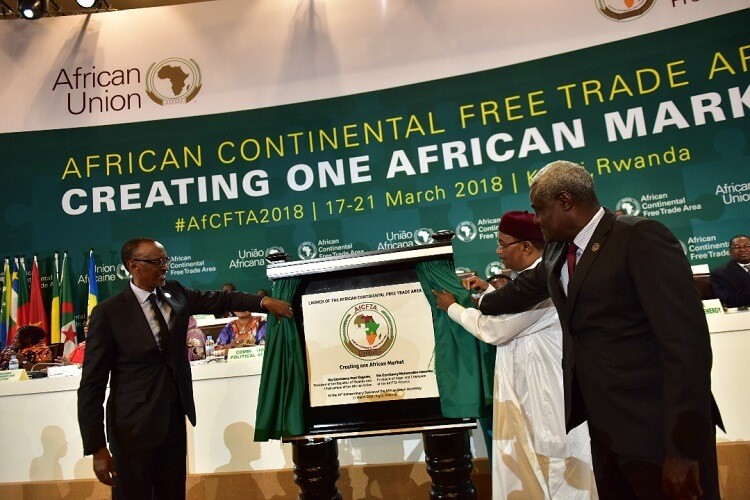Stakeholders in the Nigerian manufacturing sector have said multiplicity of tax at the different levels of government is impacting heavily on the cost of their operations.
The stakeholders made the disclosure on Friday at the ongoing virtual Strategy Workshop Series II on ‘Manufacturing for Africa’ with focus on Metal, Food, Beverage, Tobacco and Wood sub sectors.
Advertisement
The three day workshop follows the recent ratification of the African Continental Free Trade Area agreement on November 11, by the government.
They said the development, if not addressed, would make it difficult for their products to compete when the African Continental Free Trade Agreement takes off in January 2021.
The AfCFTA will bring together all 55 member states of the African Union covering a market of more than 1.2 billion people, including a growing middle class, and a combined gross domestic product of more than $3.4trn.
In terms of numbers of participating countries, the AfCFTA will be the world’s largest free trade area since the formation of the World Trade Organization.
Advertisement
Estimates from the Economic Commission for Africa suggest that the AfCFTA has the potential both to boost intra-African trade by 52.3 percent by eliminating import duties, and to double this trade if non-tariff barriers are also reduced.
The main objectives of the AfCFTA are to create a single continental market for goods and services, with free movement of business persons and investments, and thus pave the way for accelerating the establishment of the Customs Union.
It will also expand intra-African trade through better harmonization and coordination of trade liberalization and facilitation and instruments across the region.
The AfCFTA is also expected to enhance competitiveness at the industry and enterprise level through exploitation of opportunities for scale production, continental market access and better reallocation of resources.
Anup Argarwal of Africa Steel Group said ahead of the January 1 2021 kick-off, multiplicity of taxes across all tiers of government would impact heavily on the cost of manufacturing.
Advertisement
Bola Awojobi, former Director, Corporate Services, Kam Industries, said the players in the sector were faced with multiplicity of taxes across the three tiers of government, a setback he listed among others peculiar to the country.
Awojobi said, “Low technological base, dumping of imported goods, multiple taxation are some of the militating issues that the manufacturing sector currently faces. And these issues must be resolved for Nigeria to compete favourably.”
Large and small businesses operating in Africa’s largest oil producer pay different taxes, fees and levies to multiple agencies at Federal, State and Local Government levels which makes it difficult for businesses to thrive, according to analysts.



